Top 10 Argumentative Essays on Social Media
In the age of digital interconnectedness, social media's influence is profound. These argumentative essays on social media dissect its impact on relationships, ... read more...mental health, privacy, activism, and more. Delve into the complexities of a world shaped by the pervasive presence of social media. Let's find out with Toplist!
-
Essay topic: The Impact of Social Media on Relationships and Communication
Answer:
The ubiquitous presence of social media in our daily lives has transformed the way we share information and cultivate relationships. The influence of social media on interpersonal connections and communication is a subject of intense debate. While it undeniably brings people together across vast distances and facilitates quicker communication, its impact on face-to-face interaction and emotional intimacy cannot be ignored.Social media's ability to bridge geographical gaps is undoubtedly one of its most positive aspects. Regardless of physical distance, individuals can maintain meaningful connections with friends and family, fostering intimacy that transcends borders. Moreover, the accelerated pace and enhanced efficiency of communication on social media platforms have revolutionized the way we interact. Instant messaging allows for swift exchanges, while group communication is streamlined, facilitating collaboration among classmates or colleagues.
Regrettably, the rise of social media has given way to a decline in face-to-face communication. The convenience of digital interaction has led to a diminishing reliance on in-person contact, adversely affecting social skills and the quality of interpersonal relationships. Furthermore, the absence of nonverbal cues and facial expressions in digital communication has resulted in decreased emotional intimacy. This deficiency in emotional connection can contribute to heightened feelings of loneliness and isolation.
The negative impact extends to increased conflict and miscommunication. The anonymity provided by digital platforms often leads to misunderstandings and hurtful comments that might not have surfaced in face-to-face interactions. Cyberbullying, facilitated by social media, poses a significant threat to mental health and overall well-being, emphasizing the darker side of this pervasive medium.
In conclusion, the influence of social media on relationships and communication is a nuanced and multifaceted issue. While its positive effects include connecting individuals across distances and expediting communication, the negative consequences cannot be ignored. The decline in face-to-face interaction, diminished emotional intimacy, and the potential for conflict and cyberbullying highlight the need for responsible social media usage. Individuals must prioritize in-person communication, recognizing the value it holds in fostering genuine connections and maintaining the fabric of healthy relationships. Balancing the benefits and drawbacks of social media is crucial for cultivating a society that thrives on meaningful and authentic interpersonal connections.
Photo by Vera Arsic via pexels 
Photo by fauxels via pexels -
Essay topic: The Role of Social Media in the Spread of Misinformation and Fake News
Answer:
Social media has transformed the way we share information, offering a quick and easy means of dissemination. However, this convenience also presents a challenge, the swift and widespread spread of misinformation and fake news. These false narratives can have profound effects on public opinion, influence political decisions, and even harm individuals and communities.
Misinformation and fake news find fertile ground on social media platforms where they can swiftly circulate to a broad audience. Social media algorithms, designed to prioritize engaging content, inadvertently contribute to the rapid spread of false information. Sensational and controversial stories often take precedence, spreading widely before they undergo fact checking or debunking.
Social media impact on public opinion is significant, as people tend to trust information shared by their friends and followers. This creates a self reinforcing cycle where rumors and fake news gain traction despite evidence to the contrary. The power of social media to shape perceptions underscores the need for vigilance in evaluating the information we encounter.
Correcting misinformation on social media poses a formidable challenge. The speed at which false information spreads, coupled with the difficulty of reaching the same audience exposed to the initial misinformation, complicates the correction process. Additionally, individuals may resist correction, especially if the false information aligns with their existing beliefs or biases.
In conclusion, the role of social media in disseminating misinformation and fake news is both intricate and pressing. While social media has revolutionized information-sharing, it has also made it easier for false narratives to flourish and gain widespread belief. Individuals bear a responsibility for the information they share and consume, and social media platforms must implement measures to curb the spread of misinformation and fake news. The collective effort of users and platforms is essential in maintaining the integrity of information circulating on social media.
Photo by Joshua Miranda via pexels 
Photo by Produtora Midtrack via pexels -
Essay topic: The Effects of Social Media on Mental Health and Well-Being
Answer:
Social media, encompassing platforms such as Facebook, Instagram, and Twitter, has woven itself into the fabric of modern existence, connecting billions across the globe. While these platforms offer numerous advantages in fostering communication and sharing, it is important to acknowledge the potential adverse impacts on mental health and overall well-being.
Social media often acts as a breeding ground for comparison and the cultivation of low self-esteem. Individuals tend to showcase curated glimpses of their lives, emphasizing successes while concealing struggles. This selective presentation can evoke feelings of inadequacy and inferiority among others, fostering a detrimental impact on self-esteem.
A distressing facet of social media is the prevalence of cyberbullying and online harassment. The cloak of anonymity provided by these platforms allows individuals to inflict harm on others without accountability. Such online mistreatment can induce feelings of anxiety, fear, and depression, exacerbating the toll on mental health.
Contrary to its name, social media can contribute to feelings of isolation. While online friendships abound, the absence of meaningful in person connections and support can leave individuals grappling with loneliness and depressive thoughts. Striking a balance between virtual and real-world interactions is crucial for maintaining positive mental health.
The allure of social media can morph into an addiction, leading to overuse that detrimentally impacts mental health. Excessive scrolling through feeds can divert attention from critical aspects of life, including work, family, and self care. Recognizing and addressing this addictive behavior is pivotal in safeguarding mental well-being.
In summation, the impact of social media on mental health is a nuanced interplay of positives and negatives. Acknowledging this duality is imperative for individuals seeking a balanced and fulfilling digital existence. Measures such as moderating social media usage, fostering meaningful in person connections, and promoting mental health awareness are essential. Simultaneously, it falls upon social media platforms to assume responsibility, actively advocating for positive mental health practices and creating environments that prioritize the well being of their users. Striking this balance is key to navigating the complexities of our interconnected world while safeguarding mental health in the digital age.
Photo by Matthias Zomer via pexels 
Photo by cottonbro studio via pexels -
Essay topic: The Use of Social Media in Political Activism and Social Movements
Answer:
Social media, like Twitter, Facebook, and Instagram, has become vital in political activism and social movements. It provides a platform for people to express themselves, organize protests, and spotlight social and political issues.
Social media plays a crucial role in raising awareness and mobilizing action. Hashtags like #MeToo and #BlackLivesMatter have drawn attention to issues like sexual harassment and racial injustice. It helps organize protests, allowing people to come together and make their voices heard on a larger scale.
Another important aspect is how social media connects like-minded individuals. Online groups enable people to share knowledge, resources, and collaborate for common goals. This is especially valuable for those scattered across different places or lacking access to traditional forms of political organization.
However, social media in political activism faces challenges. Rumors and fake news can spread, making it difficult to share accurate information. Social media companies also face criticism for censorship and not adequately safeguarding user rights.
In conclusion, social media is a powerful tool for political activism, amplifying the voices of marginalized communities and rallying support for change. While it offers opportunities for communication and collaboration, it is crucial for users and institutions to be aware of the risks and limitations. Responsible and thoughtful usage of social media is essential to ensure its positive impact on political action and social movements.
Photo by Wikimedia Commons via pexels 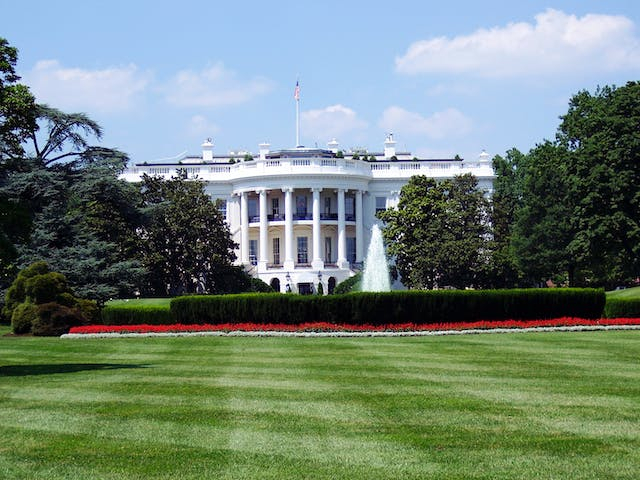
Photo by Aaron Kittredge via pexels -
Essay topic: The Potential Privacy Concerns Raised by Social Media Use and Data Collection Practices
Answer:
Social media, including Facebook, Twitter, and Instagram, has become a part of our daily lives, connecting billions of people. While these platforms offer a simple way to communicate and share information, concerns about privacy and data collection have emerged. This article explores the potential privacy issues raised by social media use and data gathering practices.
A significant privacy concern is the collection and sharing of personal data on social media. These platforms gather details about users' relationships, hobbies, and routines, sharing this information with third-party businesses for purposes like marketing. The accessibility of our personal information by others raises questions about who can access it and for what purposes.
The lack of user control over personal information is another pressing privacy issue related to social media. Once posted, it becomes challenging to limit access and control the use of data. Sensitive information may be disseminated widely, potentially leading to malicious use.
Social media companies use the gathered data to target users with personalized advertisements. While this can be convenient, it raises concerns about privacy infringement, as users may feel their information is used without consent. Additionally, issues arise concerning the accuracy of the data used for targeting and the potential for bias based on individual traits.
The use of social media also sparks concerns about government surveillance. Some countries use these platforms to monitor residents, raising significant worries about privacy and freedom of expression.
In conclusion, the use of social media brings forth significant privacy concerns related to data collection. While these platforms facilitate easy communication and information exchange, the gathering of personal information prompts questions about accessibility and usage. Users need to be aware of these privacy issues, taking precautions to safeguard their personal information. This may involve being cautious about disclosing details on social media and limiting information sharing with other companies. Understanding and addressing these concerns is crucial for ensuring a balance between the convenience of social media and the protection of personal privacy.
Photo by Stefan Coders via pexels 
Photo by Mikhail Nilov via pexels -
Essay topic: The Ethical and Privacy Concerns Surrounding Social Media Use And Data Collection
Answer:
Our daily reliance on social media for communication, information, and business has made it an integral part of our lives. However, this widespread use brings forth ethical and privacy concerns that demand attention. This article delves into the impact of social media use and data collection on user rights, the responsibility of social media companies, and the necessity for enhanced regulations.
Social media platforms amass vast amounts of personal data, including sensitive details like search history and location information. This data is utilized to create detailed user profiles, sold for advertising purposes, or used in other ways. Concerns about privacy arise as social media companies target users with personalized ads based on this data, leading to questions about how much personal information is gathered and exploited. Users must be informed about privacy policies and take steps to safeguard their data from unauthorized sharing.
Social media companies bear the responsibility to ethically collect and use user information. This involves implementing robust security measures to protect sensitive data and ensuring users are aware of the information collected and its purpose. Instances like the Cambridge Analytica scandal highlight the need for social media corporations to be held accountable for safeguarding user privacy and security.
There is a pressing need for tighter regulations in the realm of social media to address privacy concerns and the responsibilities of these companies. Legislation should focus on ethical data collection practices, user awareness and control over their information. Social media firms should be held accountable through fines for unauthorized data use, creating incentives for prioritizing user privacy and fulfilling their responsibilities.
In conclusion, while social media has revolutionized communication, it brings ethical and privacy challenges that cannot be ignored. Addressing concerns about individual privacy, holding social media companies accountable, and implementing regulations are crucial steps to ensure a safer and more secure online experience for everyone. By examining and addressing these issues, we can strike a balance between the convenience of social media and the protection of user rights.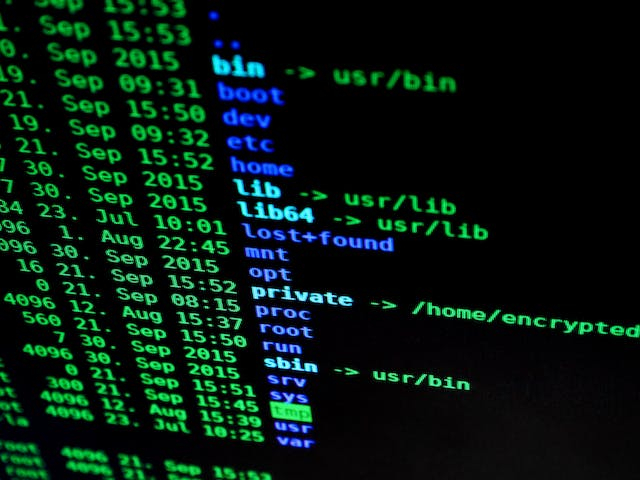
Photo by Pixabay via pexels 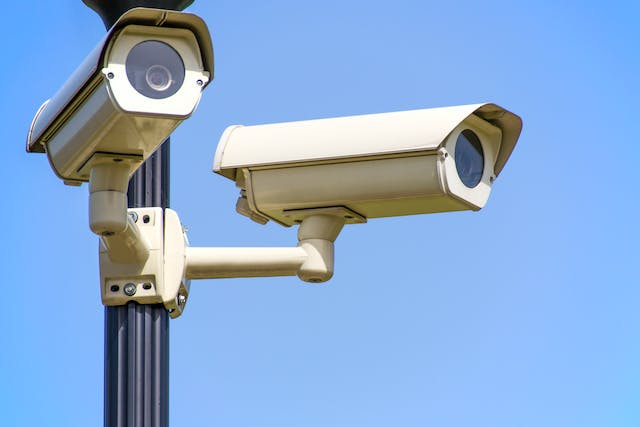
Photo by PhotoMIX Company via pexels -
Essay topic: Social Media and Cyberbullying
Answer:
Social media has become an integral part of modern communication, connecting people across distances. However, beneath the surface of virtual connection lies a troubling phenomenon: cyberbullying. In the United States, the rising prevalence of cyberbullying on social media platforms has become a pressing concern that requires immediate attention. This essay explores the urgent need for comprehensive anti-bullying measures, increased digital literacy, and collaboration between platforms and law enforcement to address the growing issue of cyberbullying.
Cyberbullying, the act of using digital platforms to harass, intimidate, or harm others, has become a pervasive problem in the United States. The anonymity provided by social media emboldens individuals to engage in harmful behavior that often goes unchecked. To combat this issue, comprehensive anti-bullying measures are imperative. Schools and social media platforms must work hand-in-hand to establish and enforce clear policies against cyberbullying. This not only includes strict consequences for offenders but also the implementation of preventive measures to create a safer online environment.
In addition to anti-bullying measures, increased digital literacy is crucial in empowering individuals to recognize and respond to cyberbullying. Education programs should be implemented in schools and communities to teach students and parents about the potential consequences of cyberbullying, the importance of responsible online behavior, and methods to report and seek help when faced with online harassment.
Moreover, collaboration between social media platforms and law enforcement is essential to address cyberbullying effectively. Platforms must invest in advanced algorithms and human moderators to identify and promptly remove abusive content. Simultaneously, law enforcement agencies should work closely with social media companies to investigate and prosecute severe cases of cyberbullying, sending a strong message that such behavior will not be tolerated.
In conclusion, the escalating issue of cyberbullying on social media in the United States necessitates immediate and concerted action. The implementation of comprehensive anti-bullying measures, increased digital literacy programs, and collaboration between platforms and law enforcement are critical steps toward creating a safer online space. By addressing cyberbullying head-on, we can foster a digital environment that promotes positive interactions and protects the well-being of individuals in the interconnected world of social media.
Photo by RDNE Stock project via pexels 
Photo by RDNE Stock project via pexels -
Essay topic: The Influence of Social Media on Elections
Answer:
In the buzzing world of elections in the United States, a new player has taken the stage, social media. The influence of these online platforms on electoral outcomes is now under the spotlight, stirring up questions and concerns. This essay delves into the impact of social media on elections, highlighting the need for a closer look at election regulations, transparency measures, and the responsibility of platforms to prevent unwanted meddling.
Social media has become a powerful force in shaping the opinions and decisions of voters during elections. Its ability to spread information quickly has both positive and concerning implications. To ensure fair and unbiased elections, it is crucial to reassess existing election regulations. New guidelines should be put in place to address the role of social media in political campaigns, ensuring that all candidates have an equal and fair chance to reach voters without any undue advantage.
Transparency is key in maintaining the integrity of elections. Social media platforms should be more open about their algorithms and advertising policies during election periods. This transparency allows voters to better understand how information is presented to them, reducing the risk of manipulation. Additionally, political advertisements on social media should be clearly labeled, providing voters with the necessary information to discern between genuine content and political propaganda.
The responsibility of social media platforms in preventing undue interference cannot be overstated. Platforms must actively work to identify and combat fake accounts, disinformation campaigns, and foreign interference. Investing in advanced technology and cooperating with election authorities can help platforms stay ahead of those who seek to manipulate the electoral process.
As we navigate the intricate landscape of elections in the United States, it is evident that social media's role demands a closer look. By reassessing election regulations, prioritizing transparency, and enforcing the responsibility of social media platforms, we can strive for elections that are fair, informed, and free from unwanted interference. In this age of digital democracy, addressing the influence of social media on elections is not just a suggestion but a necessity for safeguarding the heart of our democratic process.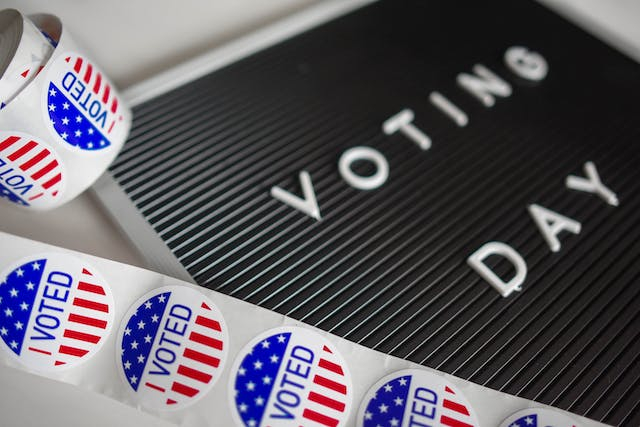
Photo by Element5 Digital via pexels 
Photo by Rosemary Ketchum via pexels -
Essay topic: Social Media and Youth Development
Answer:
In the ever connected world of today, social media has become a constant companion for American youth. However, with this pervasive use comes concerns about how it might be influencing the development of young minds. This essay delves into the impact of social media on the cognitive development, social skills, and self esteem of American youth. It aims to explore strategies that can promote responsible use and lessen any potential negative effects.
The widespread use of social media among American youth has sparked worries about its impact on cognitive development. Excessive screen time and constant exposure to digital information may affect attention spans and critical thinking skills. To address this concern, it is crucial to encourage a balanced approach to technology use. Educational programs and parental guidance can play a vital role in helping young people develop healthy media consumption habits while fostering cognitive growth.
Social skills, vital for forming meaningful connections, can be influenced by the digital realm. While social media provides opportunities for virtual interaction, it is essential to ensure that it does not replace face to face communication. Encouraging activities that involve teamwork, group discussions, and community engagement can contribute to the development of strong interpersonal skills, complementing the digital interactions prevalent in the lives of young people.
Self esteem, a cornerstone of emotional well being, is another aspect impacted by social media use. The constant comparison to curated online personas can contribute to feelings of inadequacy and lower self-worth. To mitigate these effects, it is crucial to foster a culture that values authenticity over perfection. Education and awareness campaigns can empower youth to recognize the difference between online portrayals and real life experiences, promoting a healthier sense of self esteem.
As we navigate the digital landscape, acknowledging the concerns surrounding social media's impact on American youth is essential. To promote healthy cognitive development, strong social skills, and positive self esteem, a balanced and responsible approach to social media use is imperative. By implementing strategies that encourage mindful consumption and empower young individuals to navigate the digital world with resilience, we can ensure that social media contributes positively to the development of the next generation.
Photo by kat wilcox via pexels 
Photo by Guduru Ajay bhargav via pexels -
Essay topic: Social Media and Freedom of Speech
Answer:
In the vast world of the internet, social media has become a virtual town square where people share thoughts, opinions, and ideas. But this bustling space has become a center of debates in the United States, especially when it comes to freedom of speech. This essay explores the intersection of social media and freedom of speech, delving into the discussions surrounding platform censorship, content moderation and the delicate balance between encouraging open dialogue and curbing the spread of harmful or extremist ideologies.
The debate about freedom of speech on social media revolves around the challenge of keeping the online space open while preventing the spread of harmful content. Social media platforms often find themselves at a crossroads, deciding what content to allow and what to restrict. Critics argue that some platforms may go too far in censoring diverse viewpoints, potentially limiting the free exchange of ideas. On the other hand, supporters emphasize the need for responsible content moderation to protect users from harm and maintain a safe online environment.
Striking the right balance between fostering open dialogue and preventing the spread of harmful ideologies is no easy task. Social media platforms must develop clear and transparent content moderation policies. These policies should be designed to prevent the dissemination of hate speech, misinformation, and extremist content while safeguarding users' right to express diverse opinions. Implementing these policies consistently and fairly is crucial to building trust among users.
Additionally, users themselves play a role in maintaining a healthy online environment. Digital literacy programs can empower individuals to critically evaluate information, identify misinformation and engage in constructive conversations. Encouraging respectful dialogue and understanding diverse perspectives can contribute to a more positive and inclusive online community.
As social media continues to evolve, the intersection with freedom of speech remains a focal point of discussion. Navigating the challenges of platform censorship, content moderation, and the balance between openness and safety requires careful consideration. By fostering transparency in content moderation policies, promoting digital literacy, and encouraging responsible user engagement, we can aim for a digital landscape where freedom of speech is respected, harmful content is minimized, and open dialogue thrives.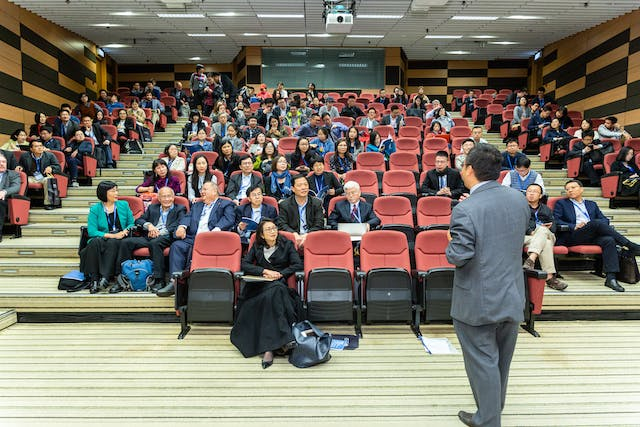
Photo by ICSA via pexels 
Photo by Matheus Bertelli via pexels































